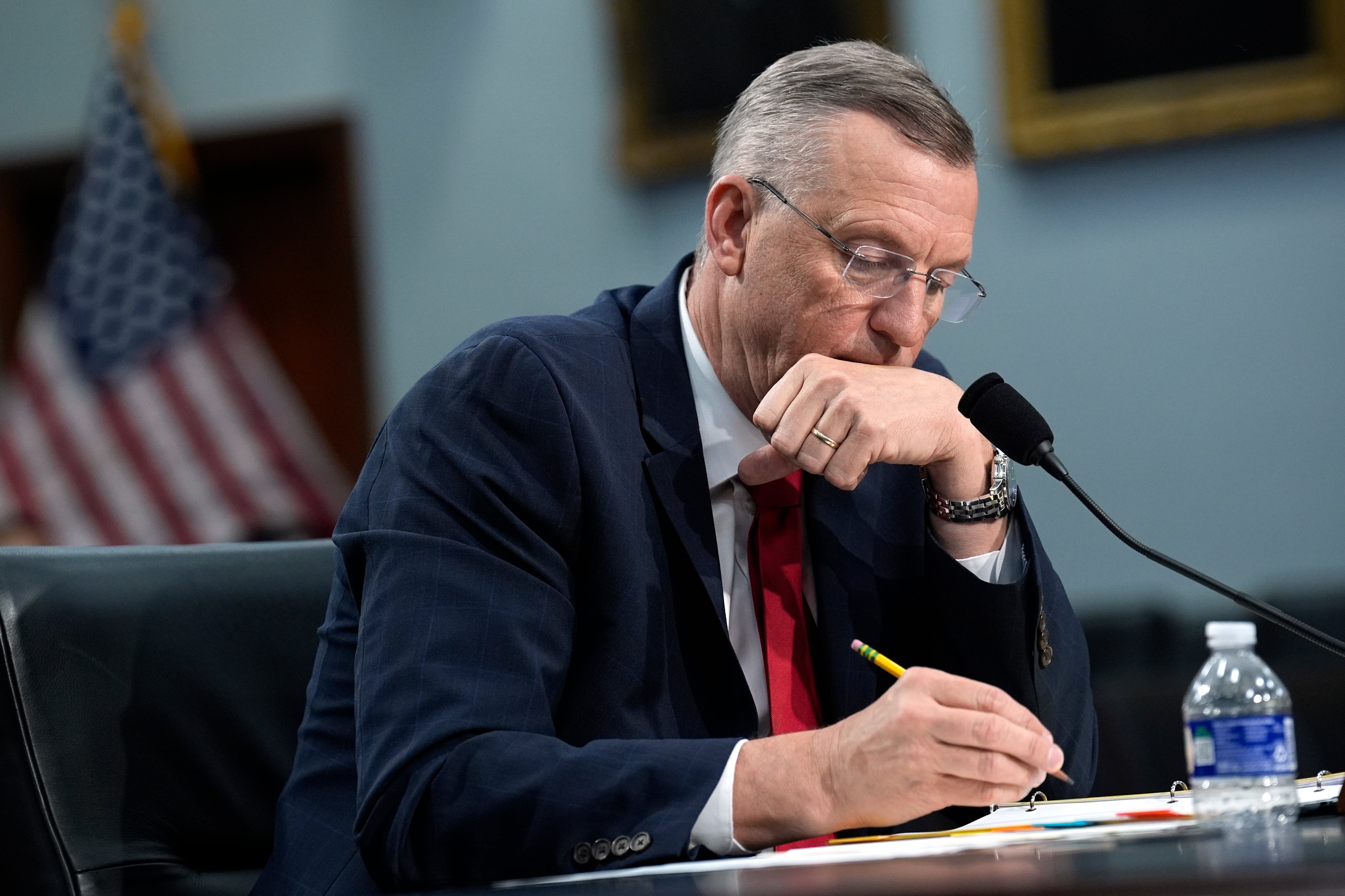President-elect Donald Trump hasn't finalized his pick to become Veterans Affairs secretary, but his choice of advisers indicates a radical overhaul to veterans' health care is in the works.
Changes at VA could have long-reaching effects on the national debate surrounding the size of federal bureaucracies and the public's responsibility for the long-term wounds of war.
On Tuesday, Trump met with Fox News personality Pete Hegseth to discuss an unspecified post within the next administration. Hegseth, former president of the conservative advocacy group Concerned Veterans for America, brought to the meeting in New York City a copy of CVA's "Fixing Veterans Health Care" report.
Hegseth is at least the third Trump adviser linked to CVA, a controversial group within the veterans community because of its ties to the Koch brothers network of conservative activist organizations.
But CVA also has become a key player in Republican circles on VA reform efforts, and the 2015 health care report has become a playbook for a radical rethinking of veterans medical treatment that CVA members hope (and critics fear) Trump will make a reality.
On Thursday, members of Trump's VA transition team met with 31 veterans groups to hear their concerns and advice on the future of the department. Verna Jones, American Legion executive director, said the organizations are sending a strong message together that they will not support "privatization" of veterans health care and benefits.
"What matters here is that VA has a health system to help veterans," she said. "We oppose getting rid of the VA health system."
The fight boils down to different group's definitions of what privatization entails, and whether small steps towards using more non-government services will eventually lead to a complete erosion of VA services.
READ THE REPORT: Fixing Veterans Health Care
Numerous lawmakers have pushed for an expansion and extension of the current Veterans Choice Card program, set to run out of money next year. That initiative allows veterans who face long wait times at local VA facilities or significant commuting distances to instead seek private care paid for by the department.
Veterans groups have voiced some complaints about the program, but largely support the idea as long as the funding doesn't take away from core VA health services.
But the CVA plans go much further, calling for "proactive and fundamental reforms" to the entire medical system. That includes "splitting the Veterans Health Administration into two entities, a hospital system responsible for medical centers and clinics, and a health insurance oversight office."
VA medical facilities would refocus on a host of service-specific injuries and compete with private-care hospitals for patients and their insurance dollars.
Dan Caldwell, CVA's vice president for policy and communications, says that's not privatization. It's a dramatic change, but one that still keeps the responsibility for veterans' health care under federal control.
"We're not selling VA off to shareholders," he said. VA health managers "right now don't have the flexibility they need to respond to changes in the veterans' population and their needs. This would give it to them."
The idea appeals to conservatives who argue that government programs have grown too bloated with bureaucracy, and often duplicate cheaper solutions in the private sector. It also fits with Trump’s campaign trail promise to root out waste and abuse throughout federal programs.
But critics say it’s essentially a dismantling of veterans’ long-promised safety net, slowly shifting funds and support to physicians without the training or incentive to provide veteran-specific care.
"A fragmented and less coordinated care environment is not optimal for veterans whose health issues are often too complex and hard to treat for providers who do not specialize in them," said Sherman Gillums Jr., executive director of Paralyzed Veterans of America.
PVA officials have been among the most vocal opponents of the CVA plans, calling them impractical to implement and dangerous for veterans. They worry that stripping VA hospitals down to just specialized care make the facilities less attractive to health care workers and too reliant on patients with unusual and expensive medical problems.
Gillums has called the CVA plan a nonstarter, and on Thursday reiterated past promises to fight such overhaul proposals if Trump decides to pursue them.
Multiple veterans groups have also grumbled privately about Trump’s close relationship with CVA, a group they see as a small number of political operatives that is new to VA reform debate.
Caldwell says the problem stems from veterans lobbyists in Washington, D.C., who are determined to reject any call for meaningful reform, using political rhetoric to shut down any new debate.
He notes that several veterans groups had engaged with CVA leaders while the report was being drafted, but claims many have now distanced themselves to curry favor with the Obama administration.
"There’s a real opportunity to have a productive discussion here," he said. "But if they want to engage in destructive behavior instead, they’ll find themselves increasingly irrelevant."
Thursday’s meeting was touted by transition officials as the first meeting between the incoming administration and any outside interest, a reflection of Trump’s commitment to addressing veterans needs, his transition team says.
But the leaders of several advocacy groups noted that CVA met with Trump two days prior to Thursday's gathering. That raises doubts, they say, that the president-elect is truly committed to hearing a variety of viewpoints and, ultimately, in building consensus.
Both Gillums and Caldwell have said they have reached out to the other side since the election, to better understand one another’s objections and complaints.
Caldwell said many details of the VHA transformation plan still need to be worked out, and that such a significant change will likely take years to implement to ensure current patients aren’t left unserved as new systems are put in place.
But even starting down the path towards reconstructing the VA health administration would be a major win for advocates of downsizing the federal government. Veterans advocates have long argued that the national responsibility of taking care of returning war heroes should insulate their community from those kinds of bureaucratic experiments.
Jones said members of the largest veterans service organizations are scheduled to sit down with transition officials again next week, and will reinforce their objections to "privatization" plans at future meetings.
They’ll also be watching closely to see who else Trump meets with on VA issues in coming days, and whether those advisers hint at more fights ahead. Follow @LeoShane
Leo Shane III covers Congress, Veterans Affairs and the White House for Military Times. He can be reached at
lshane@militarytimes.com
.
Leo covers Congress, Veterans Affairs and the White House for Military Times. He has covered Washington, D.C. since 2004, focusing on military personnel and veterans policies. His work has earned numerous honors, including a 2009 Polk award, a 2010 National Headliner Award, the IAVA Leadership in Journalism award and the VFW News Media award.





